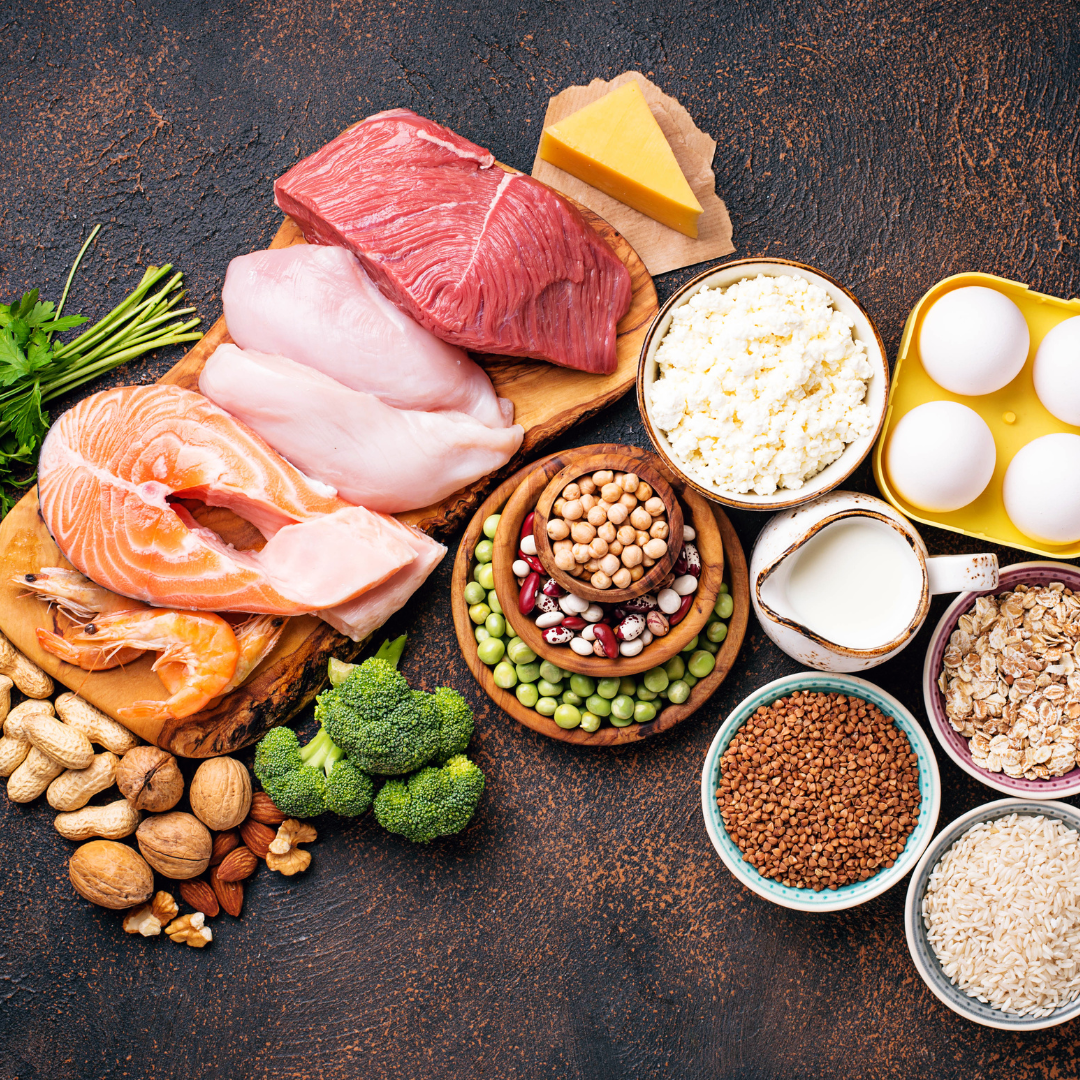
What is it? Why do we need it? How much do we need?
There is no dispute regarding the importance of protein in the human diet. Dietary protein provides the amino acids required for the building blocks in our body. They are essential for all our bodily functions – the growth and repair of our cells, particularly muscle, the health and integrity of our bones, blood, hair, skin, cartilage and hormones.
Some amino acids can be synthesised by the body, however 9 essential amino acids must be attained from our diet with animal sources containing all 9 in various ratios, while plant sources will have some of these essential aminos in different combinations.
How much do we need in our diet?
Much of the nutritional intake literature is outdated, currently advising a Recommended Daily Allowance (RDA) of 0.6-0.8 grams of protein per kilogram of body weight¹. The RDA is set to avoid deficiency and not optimise health. These recommendations also fail to consider physical activity levels and age, both of which impact our ability to retain protein balance. Physical activity and exercise requires protein for repair, recovery and muscle synthesis, while as we age, we become more resistant to utilising amino acids and therefore require more to meet daily requirements. The evidence is now stacking up to support the recommendations of 1-1.2g per kilogram of body weight, increasing to 1.2-1.5g per kilogram of body weight with physical activity and older adults, and up to 2g per kg body weight for individuals with high levels of activity, injuries, or chronic illnesses².
So for a someone who weighs 70kg, that would be a minimum of 70-84 grams of protein in their diet per day.
Spread it out…
There is mixed opinion regarding the optimal amount per meal or serve. Although there is no hard or fast rule, generally it is still recommended to space out your protein across the day with 20-30g per meal and with snacks. It’s not to say that if your meal has 50g of protein that you can only use 30g and the rest goes to waste, but it won’t provide a greater amount of muscle protein synthesis for those of you trying to bulk up.
Think about planning your meal with protein in mind first then add in your other macronutrients – carbohydrate and fats around this.
Breakfast – 2 eggs (12g); 1 Cup Milk (11g); 1 serve almonds (6g) – total 29g
Lunch – 100g chicken, beef, lamb, pork (lean, cooked) – 30g
Dinner – 150g fish (33g); ½ cup chickpeas (5g) – total 38g
Snacks – 150g Greek yoghurt (high protein variety) 15g; 1 slice bread with 1 tablespoon Peanut Butter 9g.
Although it’s always recommended to get all your nutrient requirements from food, sometimes supplements such as a protein shake can be quick, convenient and ensure you’re hitting those daily targets when life gets a little hectic.
So next time you’re creating your meal plan or thinking about what you’ll have for dinner, prioritise your protein. Your body right down to every cell will thank you for it!
- Murphy SP, Yates AA, Atkinson SA, Barr SI, Dwyer J. History of Nutrition: The Long Road Leading to the Dietary Reference Intakes for the United States and Canada. Adv Nutr. 2016 Jan;7(1):157-68. doi: 10.3945/an.115.010322. PMID: 27180379; PMCID: PMC4717892.
- Lonnie M, Hooker E, Brunstrom JM, Corfe BM, Green MA, Watson AW, Williams EA, Stevenson EJ, Penson S, Johnstone AM. Protein for Life: Review of Optimal Protein Intake, Sustainable Dietary Sources and the Effect on Appetite in Ageing Adults. Nutrients. 2018 Mar 16;10(3):360. doi: 10.3390/nu10030360. PMID: 29547523; PMCID: PMC5872778.

